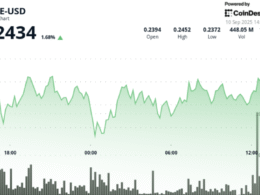The U.S. Securities and Exchange Commission and Commodity Futures Trading Commission announced a joint roundtable later this month to coordinate oversight of crypto-related and modern trading issues. SEC Chair Paul Atkins and Acting CFTC Chair Caroline Pham said the discussion will cover prediction markets, decentralized finance (DeFi), and the challenges of 24/7 trading in traditional markets.
The agencies published a joint statement outlining a push for “greater harmonization” and signaled a shift from the more adversarial posture seen under the prior SEC leadership. Atkins said, “It’s time to leave turf aside and really collaborate,” framing the roundtable as a way to bring innovators back to the U.S. and to update oversight for around-the-clock markets.
Regulatory friction has previously clouded crypto policy: the agencies debated whether certain tokens, including Ethereum’s ETH, fall under securities or commodities rules. The new joint approach aims to reduce contradictory guidance and create clearer pathways for firms operating in cross-cutting areas like DeFi and prediction markets.
On enforcement and monitoring, Atkins pointed to self-regulatory organizations (SROs) as the entities expected to handle much of the continuous surveillance of trading platforms, while the SEC and CFTC would rely on alerts and coordination. Pham said the CFTC does not currently need extra staff and touted internal consolidation to boost productivity. Atkins also mentioned ongoing market-structure legislation in Congress, which could influence any SRO framework for crypto.
Why this matters: a coordinated SEC–CFTC approach could lower legal uncertainty, encourage firms to repatriate operations, and spur product development in DeFi and continual trading markets. At the same time, harmonization could accelerate regulatory requirements firms must meet, including new SRO standards or reporting obligations.
Risk note: Policy shifts can change compliance costs and enforcement risk quickly. Firms and investors should monitor rulemaking closely and consult legal counsel about how harmonized oversight might affect products and operations.
Source: CFTC & SEC joint statement. Read the original coverage for full details.


